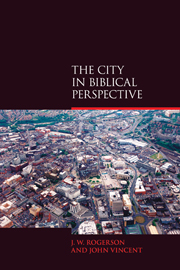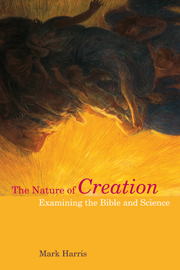2 results in Biblical Challenges in the Contemporary World

The City in Biblical Perspective
-
- Published by:
- Acumen Publishing
- Published online:
- 05 May 2014
- Print publication:
- 30 November 2009
-
- Book
- Export citation

The Nature of Creation
- Examining the Bible and Science
-
- Published by:
- Acumen Publishing
- Published online:
- 05 March 2014
- Print publication:
- 30 September 2013
-
- Book
- Export citation

